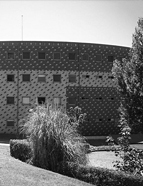

It is important to recognise that the described scenario emphasised the importance of legal history since, as has been duly noted, the legal history of a people is fundamentally the history of its legal books. Likewise, the university teachers who fall within the timeframe under consideration continued to enrich legal historiography. Notable contributions are recorded from several of these teachers, such as Luís Joaquim Correia da Silva who directed the 1792 edition of the Ordenações Afonsinas and wrote the erudite preface, and Francisco Coelho de Sousa Sampaio who, as a result of his appointment to the chair of national law in July 1789 composed Prelecções de Direito Patrio Publico, e Particular [Lectures on Public and Private National Law] enriching it with valuable historical-legal information. Interestingly, this compendium was published when Francisco Coelho de Sousa Sampaio was already a tenured professor of "History of Roman and National Law," to which he had been appointed in 1790. Antonio Ribeiro dos Santos is also worthy of mention, a figure that time has enshrined in its annals for his well-known Notas ao Plano do Novo Codigo de Direito Publico de Portugal [Notes on Portugal's New Public Law Code Plan] This work is of great value, representing the torrential censure with which Ribeiro dos Santos attacked the legislative project authored by Mello Freire and which has garnered intense interest among all those who study the historical evolution of public law and political thought in Portugal. We now close the inaugural cycle of the history of law. Covering the period from 1772 to 1836, it may be said that it coincides with the first vital breath of the discipline in the legal faculties.
The improvements introduced at the start of the 19th century were barely felt, as public life in the country soon entered a period of great unrest, leading to the suspension of university teaching. The triumph of liberalism triggered a significant reform of the legal courses, resulting in the creation of the Faculty of Law of Coimbra, a result of the merger of the two traditional legal faculties. The Pombaline Statutes had already sketched this unification by promoting a series of disciplines common to legists and canonists. Within liberal politics, this measure suited the purpose of devaluing the teaching of canon and ecclesiastical law. Although initially sparked in 1833, the idea of merging the Faculties of Laws and Canons only materialised during the Septembrist dictatorship of Passos Manuel, after various vicissitudes. By decree of 5 December 1836, the Faculty of Law replaced the Faculties of Laws and Canons. In curricular terms, the most significant change affected the teaching of national law, which became almost the exclusive focus of the last three years of the course, divided into public law, civil law (two disciplines), commercial law, and criminal law. Additionally, political economy began its promising career in the Law Faculties.
